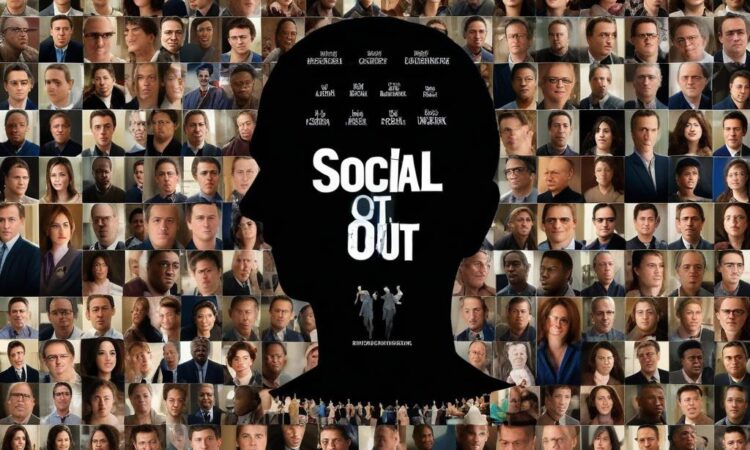The Role of Film in Social and Political Discourse
Recent films have addressed topical social and political issues, prompting conversations about the power of cinema to raise awareness and influence public opinion. This exploration delves into specific examples and examines the role of film as a platform for social commentary.
Introduction: Cinema as a Mirror to Society
Film, since its inception, has served as a powerful tool for reflecting and shaping societal values. Through its ability to tell stories, evoke emotions, and present different perspectives, cinema has the potential to engage audiences on a profound level, sparking dialogue and challenging preconceived notions.
The medium’s capacity for social commentary has been particularly evident in recent years, with filmmakers increasingly tackling complex and controversial topics. From the Black Lives Matter movement to climate change and gender equality, films are not merely documenting these issues but also offering insightful perspectives and driving societal discourse.
Examining Specific Examples:
1. \”Get Out\” (2017) and the Unmasking of Racial Prejudice
Jordan Peele’s groundbreaking horror film \”Get Out\” serves as a potent example of film’s ability to address racial issues head-on. The film, through its unique blend of horror and social commentary, exposes the insidious nature of racial prejudice and microaggressions in modern society.
Peele’s masterful use of cinematic language, including unsettling imagery and suspenseful storytelling, forces viewers to confront uncomfortable truths about systemic racism and the ways in which it manifests in everyday life. \”Get Out\” sparked widespread conversations about race and identity, igniting a national dialogue on racial inequality.
2. \”Spotlight\” (2015) and the Importance of Investigative Journalism
The film \”Spotlight,\” based on the true story of the Boston Globe’s investigation into child sex abuse within the Catholic Church, underscores the crucial role of investigative journalism in holding institutions accountable. The film, with its meticulous attention to detail and unflinching portrayal of the scandal’s impact, highlights the power of journalism in exposing corruption and protecting vulnerable communities.
\”Spotlight\” serves as a reminder of the importance of a free press in a democratic society. The film’s critical acclaim and widespread recognition further demonstrate the impact that films can have in raising awareness about important social issues and encouraging societal change.
3. \”The Social Network\” (2010) and the Rise of Social Media
David Fincher’s \”The Social Network\” provides a compelling and insightful look into the rise of social media and its impact on society. The film explores the complex social dynamics that fueled the creation of Facebook, delving into themes of ambition, betrayal, and the human cost of technological innovation.
\”The Social Network\” ignited debates about privacy, online identity, and the role of technology in shaping our relationships and interactions. By portraying the behind-the-scenes story of Facebook’s creation, the film compels viewers to reflect on the consequences of our increasing reliance on social media platforms.
The Power of Film to Shape Public Opinion
The examples cited above illustrate how film can serve as a catalyst for social change. By presenting nuanced perspectives, challenging preconceptions, and engaging audiences on an emotional level, films have the power to influence public opinion and drive societal progress.
However, it is important to note that film’s impact on public opinion is not always straightforward. The power of film to influence viewers can also be misused for manipulative purposes. Propaganda films, for instance, have been used throughout history to promote particular ideologies and distort public perception.
Film as a Platform for Social Commentary:
Filmmakers, with their artistic vision and storytelling abilities, can leverage the medium to shed light on critical social and political issues. By creating compelling narratives that resonate with audiences, they can foster empathy, challenge existing norms, and spark meaningful dialogue.
However, the responsibility of engaging in social commentary through film is not solely on the filmmakers. Viewers also play a crucial role in interpreting and engaging with the messages presented on screen. By actively participating in discussions and reflecting on the themes explored in films, audiences can contribute to the broader social and political discourse.
Conclusion:
The role of film in social and political discourse is undeniable. As a powerful tool for storytelling, emotional engagement, and raising awareness, cinema has the potential to shape public opinion, inspire change, and drive societal progress. From challenging racial prejudice to exposing corruption and prompting conversations about the impact of technology, films continue to serve as a vital platform for social commentary.
In an increasingly complex and interconnected world, the power of film to provoke thought, spark dialogue, and contribute to meaningful change remains crucial. By embracing the potential of cinema as a vehicle for social discourse, we can collectively work towards a more just, equitable, and informed society.

